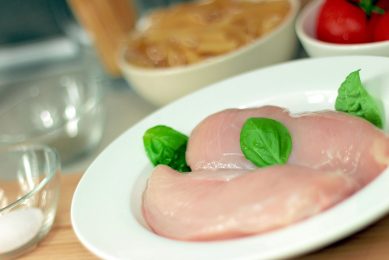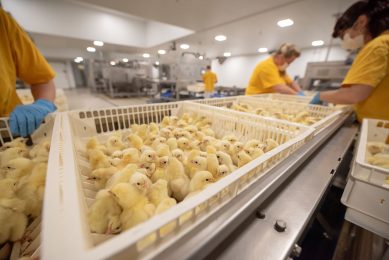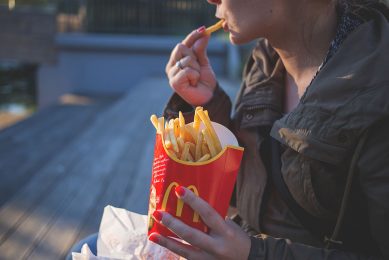Roos Molenaar graduated on embryonic development
Last Friday, Ms. Roos Molenaar graduated to the degree of Doctor at the Wageningen University in the Netherlands. Her thesis was entitled: “Perinatal development and nutrient utilisation in chickens – Effects of incubation conditions.”
Suboptimal environmental conditions such as a high temperature during the 21 days of incubation of chicken embryos can negatively affect development and lead to mortality. The reason why this happens and the long-lasting consequences of suboptimal incubation conditions are largely unknown and are therefore investigated in the thesis of Roos Molenaar.
Results show that a high temperature from the first week of incubation negatively affects survival and development of chickens from the incubation until the growout period. This is possibly the result of the lower hepatic glycogen stores that were found in embryos incubated at a high temperature. Hepatic glycogen (=sugars) is utilised during the energy demanding hatching process. The lack of these readily available sugars in embryos incubated at a high temperature may result in the use of proteins for energy instead of body development.
Furthermore, high compared with normal incubation temperatures reduce the heart and lung development at hatch and may impair the heart and lung capacity in later life. This may explain the increase in mortality related with ascites or the so called ‘waterbelly’ that was found in broiler chickens that were incubated at a high temperature. A higher mortality related with ascites due to a high incubation temperature was not demonstrated before.
The graduation of Roos Molenaar was made possible by HatchTech incubation technology from the Netherlands in close cooperation with Wageningen University. Part of the research was also carried out at the Pennstate Unversity in the USA. Roos Molenaar will continue working at the R&D department of the HatchTech group.













